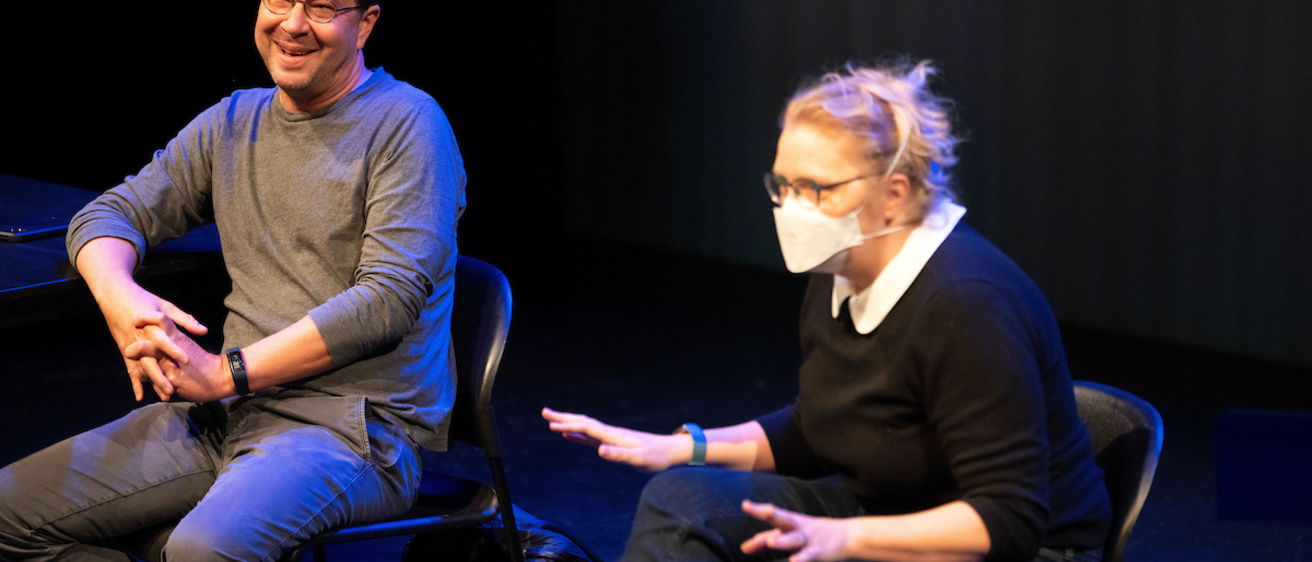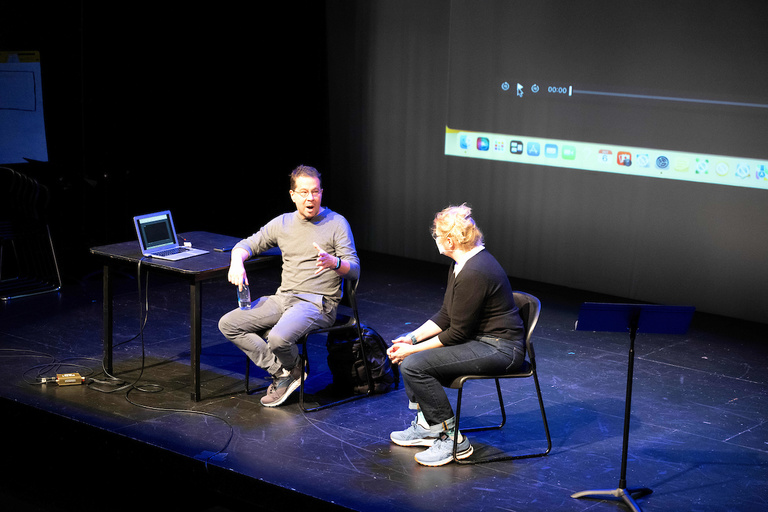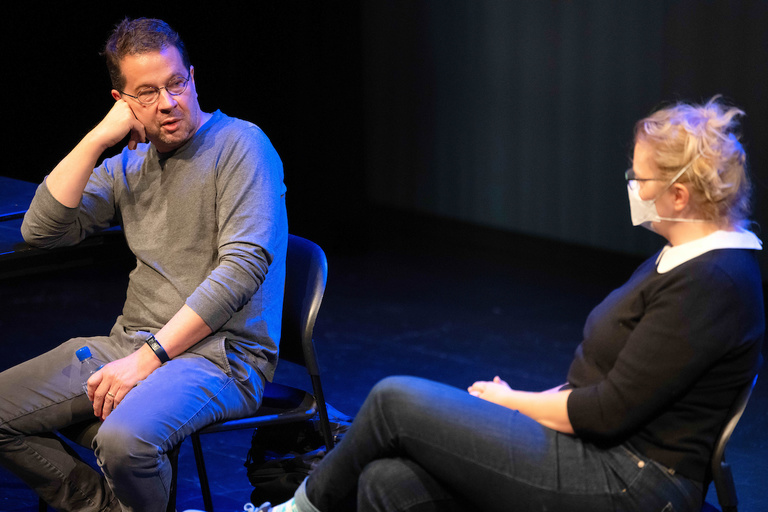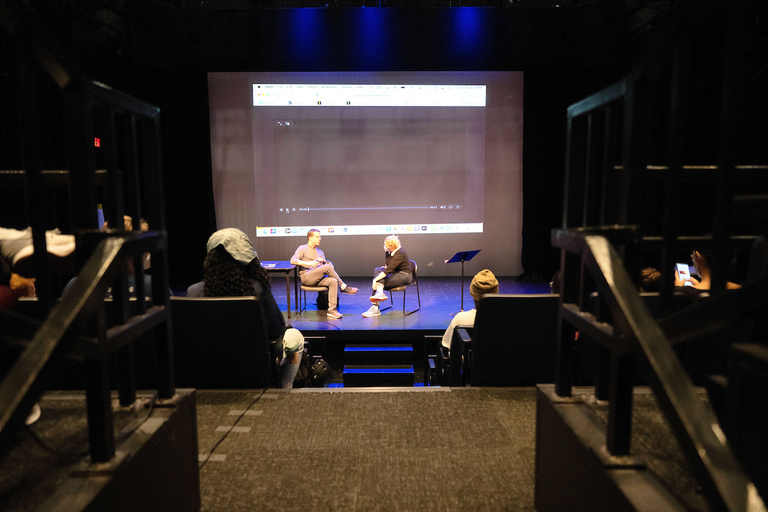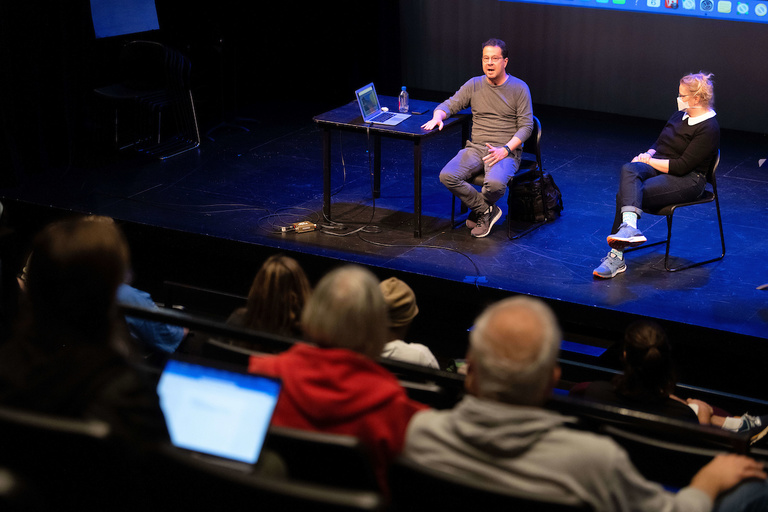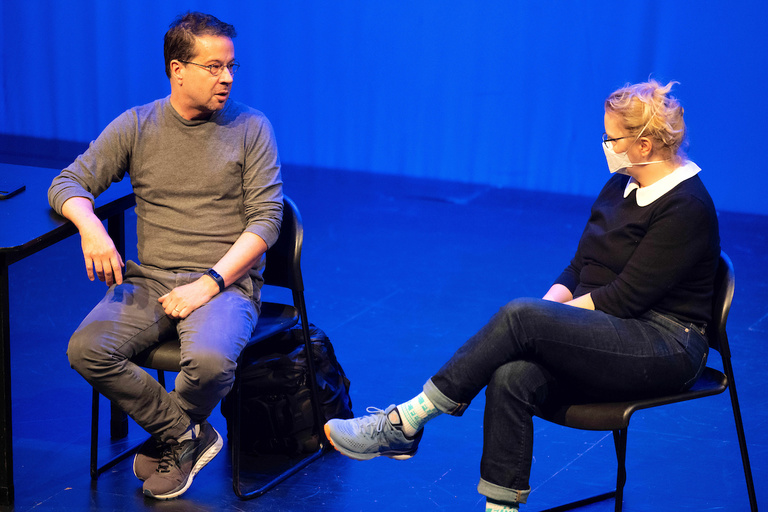You’ve likely seen the work of Iowa alum and standout television writer Rick Cleveland.
A prolific playwright, film writer, television writer, and actor, Cleveland has contributed to TV sensations like The West Wing, Mad Men, Nurse Jackie, House of Cards, and Archer. His stage play Jerry and Tom was also adapted into a film that went on to be an official selection at the Toronto and Sundance Film Festivals. He wrote and performed his solo show My Buddy Bill at theaters in Chicago and Los Angeles—and even went on to win an Emmy for his writing on an episode of The West Wing.
Now, he is guiding a new generation of Hawkeye writers in a television room writing course at Iowa, and recently hosted a public lecture while visiting campus for his teaching role.
“It’s an exciting course,” says Christopher Lysik, a second-year Iowa playwriting candidate in the UI Playwrights’ Workshop and a student in Cleveland’s class. “Getting to see how he evolved from a playwright to a TV writer is really exciting.”
During his October lecture, Cleveland discussed how he broke into TV, saying that he hadn’t initially planned on becoming a writer for television.
“I came to Iowa, and I left here with a job in Hollywood,” he says.
Cleveland also explained some of the universal aspects of writing for the public, such as the necessity of creating art that reflects what people need in a moment. In times of tragedy and confusion, media can help society cope, he explains. He uses climate change as an example.
“Climate change is a horrifying reality, and it’s either past the tipping point to do anything about it or we’re so close to the tipping point that we’d rather keep our head in the sand,” he says.
With this and countless other situations, he says it is important that the concerns and feelings generated by world events are addressed in writing—and that it is important a writer toes the line between hopelessness and hopefulness.
“I think any balance between the two is important,” he explains, going on to cite such examples as the miniseries Station Eleven, which contains a healthy combination of optimism and pessimism regarding the future, he added.
Students in the audience of Cleveland’s lecture were excited about what he had to say.
“It [his talk] was really incredible,” says Elle Murphy, a second-year undergraduate student studying English and Creative Writing. “How he was talking about the balance between hope and pessimism is really important when talking about writing, especially with TV right now.”
Much like the future itself, the future of writing and the art it produces is a complicated matter. What isn’t complicated is Cleveland’s feeling that the University of Iowa prepared him for his writing career.
“Coming to Iowa was the first smart decision I made,” he says. "There were people here who treated my work as seriously as I wanted it to be treated, which really was a gift for me.”
